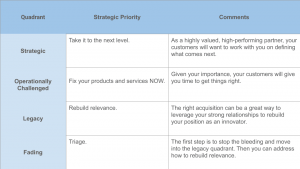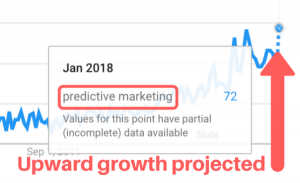— November 16, 2018
Attending conferences is a great way to grow your network, meet new potential clients, increase your skill set and much more. There are tons of conferences for every industry and it can be an exciting opportunity to get out of the office and beneficial for your company too.
But if you end up choosing a conference that doesn’t have a turnout like you expected, or isn’t relevant to your needs, it can end up being more of a waste of time than a good investment. With so many awesome conferences to choose from throughout the year, how do you decide which ones are worth your time and money?
Don’t worry, we’ve got you covered. Here are 5 pro tips for how to decide which conferences to attend.
1. Determine your goals.
Before deciding which conferences you’ll attend, first you have to determine what your goals are. With every conference you attend you should have at least one end goal you want to achieve by attending. Do you want to speak with like-minded people and grow your network? Do you want to learn a new skill or get a certification? Do you want to meet potential clients?
Depending on what goal you want to achieve, you’ll want to base which conference you attend on that goal. So, for instance, if your goal is to learn a new skill, you’ll want to take a look at the educational opportunities at each conference. Choose the one that offers lessons that will further your career.
2. Consider your budget.
Conferences can be expensive. You have to consider travel expenses, hotel and food costs, the price of the conference itself and more. So, lay out your budget and decide how much money you’re willing to spend on conferences. Next you have to decide which conferences will give you more bang for your buck.
Do you want to travel very far to one big conference that costs a lot to attend or will attending a couple smaller, more reasonably priced conferences work better for your budget and the goals you want to achieve?
3. Find out who is attending.
Next you’ll want to find out who is attending each conference. Take a look at who the speakers will be at the conference. Are they in line with your industry and is it important to hear them speak? If there’s rockstar of your industry speaking, that’s probably a don’t-miss conference. But if the speakers aren’t relevant to you, the conference might be a pass.
Aside from the speakers, you also have to look at who else will be attending the conference. If your competition, a company you’d like to work with in the future, or your potential clients are going, you might want to go to that conference too. An easy way to get an idea of who is attending the conference is to check out social media. Most conferences have their own Twitter account and a hashtag, so you can see who’s interacting with them and tweeting about attending.
4. Look at the conference schedule.
Next take a look at the conference schedule. Some conferences might be so packed with keynotes and seminars that you won’t be able to fit in as much time for networking or visiting exhibitor booths. You have to decide how you want to spend your valuable time.
You also can’t be in more than one session at a time, so study the schedule to make sure you’re able to attend the events you want to attend most. Also consider if the majority of the tracks are useful to you. If a conference boasts a lot of attendees but the scheduled events aren’t relevant to you at this point in your career, you might want to attend a conference that has a schedule of events better suited to your needs.
5. Consider other obligations.
One of the most important steps to deciding if you should attend a conference is to consider your other obligations. Taking a week away from your business at the wrong time could be a disaster. For instance, is the conference being held in the middle of your busiest season? If it is, you might want to attend a conference that’s held during a different time of the year.
You also have to consider who will be managing the office when you’re away? Attending a conference while your top leader is on vacation might not be the best option either.
Start planning out which conferences you’re going to attend about 6 months in advance so you don’t miss out on a spot at the conference, flight or accommodations. Have fun planning your conferences for the coming year, with these tips you’ll be able to easily determine which conferences will give you the best overall experience and the most return on your investment.
Business & Finance Articles on Business 2 Community
(99)
Report Post







